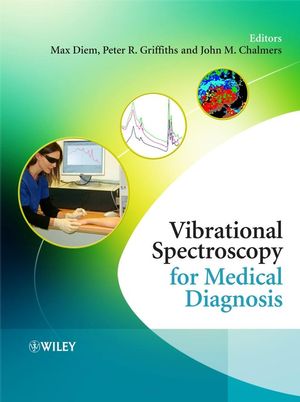Vibrational Spectroscopy for Medical DiagnosisISBN: 978-0-470-01214-7
Hardcover
358 pages
May 2008
 |
||||||
Cancer is the second largest cause of death (after heart disease)
in North America and Europe. Statistics from many countries serve
constantly to inform us of how prevalent cancer is worldwide, even
though one particular variation may be more predominant is one
geographical region than another. The Traumatic cost in human
lives, the dramatic cost of treatment and the need for rapidly
advancing diagnoses and improving diagnostic methods for cancer,
are clear for all to see. Current histopathological techniques for
the detection and classification of cancer often lead to ambiguous
diagnoses. Infrared and Raman spectroscopy have the potential to
provide fast, accurate complementary techniques for the detection
of many different forms of cancer. This book contains ten
state-of-the-art chapters on the application of these techniques to
the detection and classification of prostate, lymphatic, cervical,
head and neck, and esophageal cancers, as well as reports on the
application of vibrational spectroscopy to the study of individual
human cells, and the identification of micro-organisms and
erythrocytes, which should be of importance to spectroscopists and
medical professionals alike.
This book provides an up-to-date account of the practical means, applications and potential of mid-infrared and Raman spectroscopy for the medical diagnosis of diseased tissue and cells. It will be of significant interest both to vibrational spectroscopists involved in developing technique for medical diagnosis, and to clinicians, histopathologists, medical practitioners and students working in the field, with whom the spectroscopists must work closely in multi-disciplinary teams.
This book provides an up-to-date account of the practical means, applications and potential of mid-infrared and Raman spectroscopy for the medical diagnosis of diseased tissue and cells. It will be of significant interest both to vibrational spectroscopists involved in developing technique for medical diagnosis, and to clinicians, histopathologists, medical practitioners and students working in the field, with whom the spectroscopists must work closely in multi-disciplinary teams.



